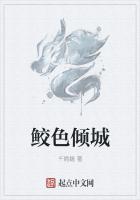Land is still so cheap, and, consequently, labour so dear among them, that they can import from the mother country almost all the more refined or more advanced manufactures cheaper than they could make for themselves.Though they had not, therefore, been prohibited from establishing such manufactures, yet in their present state of improvement a regard to their own interest would, probably, have prevented them from doing so.In their present state of improvement those prohibitions, perhaps, without cramping their industry, or restraining it from any employment to which it would have gone of its own accord, are only impertinent badges of slavery imposed upon them, without any sufficient reason, by the groundless jealousy of the merchants and manufacturers of the mother country.In a more advanced state they might be really oppressive and insupportable.
Great Britain too, as she confines to her own market some of the most important productions of the colonies, so in compensation she gives to some of them an advantage in that market, sometimes by imposing higher duties upon the like productions when imported from other countries, and sometimes by giving bounties upon their importation from the colonies.In the first way she gives an advantage in the home market to the sugar, tobacco, and iron of her own colonies, and in the second to their raw silk, to their hemp and flax, to their indigo, to their naval stores, and to their building timber.This second way of encouraging the colony produce by bounties upon importation, is, so far as I have been able to learn, peculiar to Great Britain.
The first is not.Portugal does not content herself with imposing higher duties upon the importation of tobacco from any other country, but prohibits it under the severest penalties.
With regard to the importation of goods from Europe, England has likewise dealt more liberally with her colonies than any other nation.
Great Britain allows a part, almost always the half, generally a larger portion, and sometimes the whole of the duty which is paid upon the importation of foreign goods, to be drawn back upon their exportation to any foreign country.No independent foreign country, it was easy to foresee, would receive them if they came to it loaded with the heavy duties to which almost all foreign goods are subjected on their importation into Great Britain.Unless, therefore, some part of those duties was drawn back upon exportation, there was an end of the carrying trade; a trade so much favoured by the mercantile system.
Our colonies, however, are by no means independent foreign countries; and Great Britain having assumed to herself the exclusive right of supplying them with all goods from Europe, might have forced them (in the same manner as other countries have done their colonies) to receive such goods, loaded with all the same duties which they paid in the mother country.But, on the contrary, till 1763, the same drawbacks were paid upon the exportation of the greater part of foreign goods to our colonies as to any independent foreign country.In 1763, indeed, by the 4th of George III, c.15, this indulgence was a good deal abated, and it was enacted, "That no part of the duty called the Old Subsidy should be drawn back for any goods of the growth, production, or manufacture of Europe or the East Indies, which should be exported from this kingdom to any British colony or plantation in America; wines, white calicoes and muslins excepted." Before this law, many different sorts of foreign goods might have been bought cheaper in the plantations than in the mother country; and some may still.
Of the greater part of the regulations concerning the colony trade, the merchants who carry it on, it must be observed, have been the principal advisers.We must not wonder, therefore, if, in the greater part of them, their interest has been more considered than either that of the colonies or that of the mother country.In their exclusive privilege of supplying the colonies with all the goods which they wanted from Europe, and of purchasing all such parts of their surplus produce as could not interfere with any of the trades which they themselves carried on at home, the interest of the colonies was sacrificed to the interest of those merchants.In allowing the same drawbacks upon the re-exportation of the greater part of European and East India goods to the colonies as upon their re-exportation to any independent country, the interest of the mother country was sacrificed to it, even according to the mercantile ideas of that interest.It was for the interest of the merchants to pay as little as possible for the foreign which they sent to the colonies, and, consequently, to get back as much as possible of the duties which they advanced upon their importation into Great Britain.They might thereby be enabled to sell in the colonies either the same quantity of goods with a greater profit, or a greater quantity with the same profit, and, consequently, to gain something either in the one way or the other.It was likewise for the interest of the colonies to get all such goods as cheap and in as great abundance as possible.But this might not always be for the interest of the mother country.She might frequently suffer both in her revenue, by giving back a great part of the duties which had been paid upon the importation of such goods;and in her manufactures, by being undersold in the colony market, in consequence of the easy terms upon which foreign manufactures could be carried thither by means of those drawbacks.The progress of the linen manufacture of Great Britain, it is commonly said, has been a good deal retarded by the drawbacks upon the re-exportation of German linen to the American colonies.
But though the policy of Great Britain with regard to the trade of her colonies has been dictated by the same mercantile spirit as that of other nations, it has, however, upon the whole, been less illiberal and oppressive than that of any of them.















